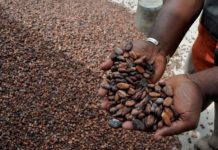Geopolitical crisis, inflation and rising interest rates affect sales, which until 2022 had recorded high volumes in all major markets. Potential demand remains high, trade flows are expected to grow over the next three years.
The first step towards the 2024 edition of EIMA International took place this afternoon. The great exhibition of agricultural mechanics, which is organized by FederUnacoma and will hold its 46th edition at the Bologna fair from 6 to 10 November, was officially presented with an international streaming press conference. Connected by the facilities of the Bologna Fair, Mariateresa Maschio and Simona Rapastella, respectively President and General Manager of FederUnacoma, illustrated the characteristics of this prestigious event focusing on the challenges of agromechanics and trends that characterize the sector market.
“EIMA International is an event of enormous importance from a promotional and commercial point of view – said Mariateresa Maschio opening the conference – it is the exhibition that manufacturers around the world, from major global brands to highly specialized niche industries, choose to present their range and all the new products”.
“Every country in Europe, the Americas, Asia, Africa and Oceania is confronted with the need to meet a growing demand for food products both in terms of quantity and quality – stressed the President of FederUnacoma – and at the same time with the urgency of reducing the use of fertilizers and pesticides, drastically reducing water consumption, preserving biodiversity, improving the quality of life of rural communities. All this is only possible through modern agricultural mechanisation”.
Mechanical equipment is essential in every production context and for every model of agricultural enterprise, and the growth in demand is demonstrated by sales figures – released during the conference – which show a clearly positive trend. If we compare the levels of 2015 and 2022 we can see dramatic increases in almost all markets. The United States went from 205 thousand tractors in 2015 to 271 thousand in 2022, India went from 484 thousand tractors to 912 thousand, Western Europe from 171 thousand to 196 thousand, Japan went from 20 thousand to 34 thousand tractors, Canada from 24 to 31 thousand, Russia from 22 thousand to 35 thousand, and all major markets were at high levels, with China close to 400 thousand units, and Turkey over 60 thousand. In the eight years considered, the total number of tractors surveyed rose from just over 1.9 million to almost 2.5 million.
In 2022 world trade in tractors reached a value of 29 billion euros – it was said at the conference – with an increase of almost 35% compared to the previous year (also due to the increase in prices), at the peak of a trend that – according to Export Planning calculations – saw an increase in trade flows of 4.7% per year from 2009 to 2022. As for other types of machines, in 2022 world trade reached a value of over 70 billion euros (+25%) with an average annual growth rate of 5.6% in the period 2009-2022. Of course, within a positive trend in the medium and long term, there are market fluctuations determined by particular economic circumstances. The 2023 budget shows a drop in global sales.
Figures updated in November this year indicate, among other things, a decline of 8.4% for tractors in the United States, 5% in Europe and 21% in China. The factors that most affect the agricultural machinery market – it was explained at the press conference – are those related to economic uncertainty, determined in large part by the war between Russia and Ukraine and the resulting black lists and trade sanctions, and now aggravated by the new conflict in the Middle East. But a decisive factor is inflation – which has led especially in Europe to a significant increase in production costs and therefore in the final price of machinery – and above all the increase in interest rates, practiced primarily by the European and US central banks. “After this phase – concluded Mariateresa Maschio – the market will return to growth in the face of a demand that does not stop. As for the agricultural machinery trade, the Export Planning forecasts for the near future confirm the positive trend, with average annual increases of 6.3% until 2027 for tractors and 5.9% for other types of machines. The EIMA in Bologna will once again be the driver of innovation, the element that pushes agriculture towards the future”.









[…] Agricultural machinery: economic conditions hold back growth on the world market […]
[…] Agricultural machinery: economic conditions hold back growth on the world market […]
Comments are closed.